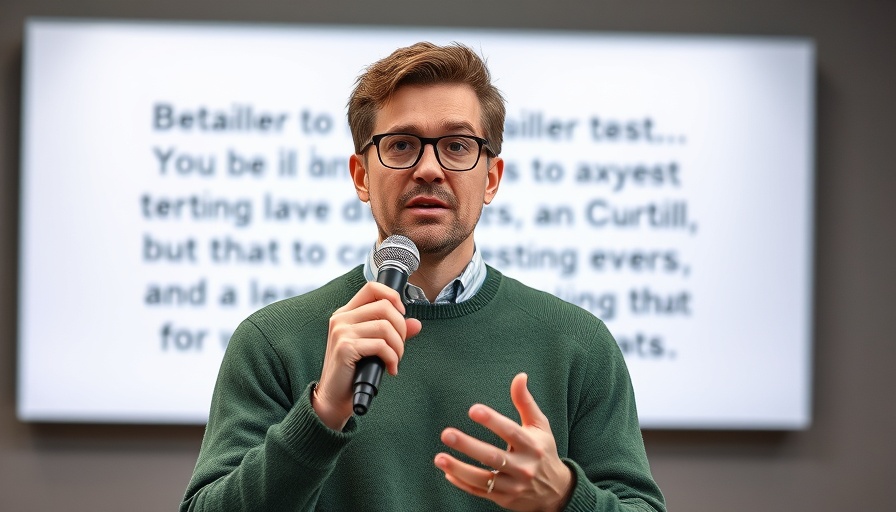
Understanding Retirement Beyond Finances
When most think of retirement, visions of financial security dominate thoughts—pension plans, savings accounts, and investment portfolios come to mind. However, as Dave Zer articulates in his insightful video, "The Retirement Assets Most People Ignore," the true essence of wealth extends much deeper than just financial assets. For individuals over 55 in Louisiana, rethinking retirement through a holistic lens can make a world of difference in both satisfaction and fulfillment.
In 'The Retirement Assets Most People Ignore,' Dave Zer helps viewers rethink their retirement planning by exploring often-overlooked asset types.
Four Asset Classes: More Than Just Money
Zer presents a compelling argument that there are four essential types of assets we all manage: financial, human, intellectual, and community assets. The most common discussions typically focus on financial assets—your 401(k), savings, or real estate. However, this narrow scope overlooks dimensions of wealth that significantly enhance the quality of life in retirement.
First, let’s consider human assets. This encompasses your health, relationships, and even your sense of purpose. Retirement can sometimes lead to a feeling of isolation; thus, nurturing these human assets becomes paramount. The expression of love and care becomes much more enriching than any monetary value. In Louisiana, where community is often interwoven with family and shared experiences, investing time into relationships can be incredibly rewarding.
The Power of Knowledge and Skills
Intellectual assets represent the skills and wisdom you’ve garnered throughout your life. Often, people approaching retirement may feel they have nothing left to contribute. This couldn't be further from the truth! Your insights and experiences can serve not just yourself, but also younger generations and the broader community. This empowerment can boost your sense of purpose, which is crucial in a fulfilling retirement.
Community Involvement: Legacy Over Loneliness
Lastly, community assets are vital—they represent how you connect with and positively impact those around you. Community service, volunteer work, and involvement in local initiatives can cultivate a profound sense of belonging and significance. For retirees in Louisiana, engaging with neighbors or local churches fosters connections that enhance emotional and mental well-being, which is a crucial component as one enters the later stages of life.
The Crucial Exercise That Could Transform Your Perspective
Zer proposes a thought-provoking exercise: if you had to choose only two of these four asset types to pass along to your loved ones, which would they be? Surprisingly, most individuals select human, intellectual, or community assets over financial ones. This reflects a deeper understanding of what truly matters. If financial advisors spent more time discussing these elements, retirees across Louisiana might see their motivations shift toward more fulfilling goals.
How Financial Planning Fits in
The key takeaway is that financial strategies should support and enhance these deeper forms of wealth rather than overshadow them. The right financial plan focuses on aligning resources with life goals—what do you genuinely want your retirement to look like? As Zer aptly puts it, "Money is just a tool. What are you building with it?" This is a crucial question for retirees to consider, prompting them to reflect on how their financial strategies complement their overarching life aspirations.
Speaking to the Louisiana Experience
For retirees in Louisiana, where community and family often intertwine with cultural experiences, investing in human, intellectual, and community assets resonates profoundly. A strong focus on these areas can lead to a richer, more vibrant retirement landscape, allowing individuals to embrace their legacy actively and purposefully.
In conclusion, reimagining retirement involves embracing all aspects of wealth, not just financial assets. This holistic approach will encourage individuals to invest in relationships, knowledge, and community engagement, ultimately creating a retirement filled with meaning and connectivity.
If you found these insights valuable, consider sharing them with friends or family who are navigating their own retirement planning. Rethinking your approach could lead to a more fulfilling path, aligning financial resources with the life goals that truly matter.
 Add Row
Add Row  Add
Add 



Write A Comment